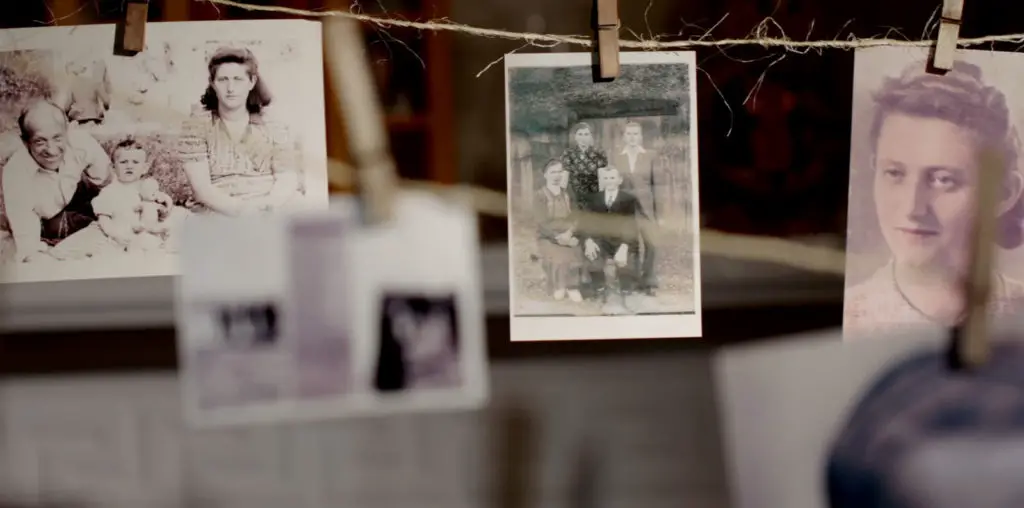
This is amazing. I’ve only gotten through an hour and fifty-six minutes of this massive 7-hour documentary and I feel like, I don’t know. It’s not as if the wind has been knocked out of me, but it’s that indescribable feeling you get when something great has passed before your eyes. It appears that Steve James, along with other talented filmmakers have so far created an astounding journey of hope, frustration, sadness, joy, curiosity, and other emotions. In other words, it’s the feelings that not only envelope the subjects of “The New Americans”, but will not fail to reach viewers.
We begin in Benin, West Africa in 1998, where Israel Nwidor and his wife Ngozi, reside in a refugee camp for Ogonis, a tribe that escaped the political persecution that Nigeria brought to bear down upon them. Israel used to be a petrochemical engineer and that got him into a heap of trouble with a military government, whose oil pipelines ran the gamut of the Ogoni tribe’s lands, and killed off the fish that was one of their modes of survival. Israel looks forward to the opportunity to live in America, to sleep on a good bed, and to finally know what a hamburger tastes like, after reading about it in countless novels. And Eddie Murphy should be happy to know that his movies reach Nigeria because Israel mentions feeling like Murphy’s character in “Coming to America”, when it’s his time to depart for the States.
Then we’re whisked off to El Jib in The West Bank where Naima Saadeh, a Palestinian, is introduced. Naima’s story, along with that of her mother, puts a face to one side of the Israeli-Palestinian conflict that’s not CNN-spun. She’s been attending the University of Jerusalem and in order to get there, the Israelis who stand guard on roadsides, monitoring the Palestinians who enter their areas, check permits. Her mother, Um Mujahid, sacrificed a lot for her children, including Naima, who wouldn’t have been able to attend school and build up a solid education, without her mother’s help. Stories are passed along of two sons, one that was killed during the first Intifada, or Palestinian uprising that occurred. The other at 14 years old, was imprisoned, but told his family through certain communication channels, not to send the bail because that would be seen as helping the occupation. At the point in time of the documentary, he installs windows. Naima is an admirable woman, wanting more than what her place of residence has to offer. Its conservative way of thinking clashes with her thoughts and ideals and she feels that America is the place to allow her to be free to think what she wants, act the way she wants, and have the chance to succeed. Not only that, but Hatem Abudayyeh is also there, waiting for her. Two months after she and Hatem, they were engaged, and it’s now that time for Hatem to pick up his future bride and for her family to travel with them to attend the wedding. That doesn’t come without a few bumps and near misses, including much worry over visas.
The other story that begins in part one involves Jose Garcia and Ricardo Rodriguez, two aspiring baseball players in the Dominican Republic who wish to make it big as major leaguers. It’s incredibly ironic because back in May of last year, I had seen a documentary by filmmakers Tiller Russell & Loren Mendell called “Change Up”, which dealt with that exact same subject matter, and there’s another Rodriguez in that one named Rafael. This story focuses a little less on the families than “Change Up” did (obviously because it’s sharing room with the previous two stories), but it’s just as tension-filled and intriguing as that film. Both boys end up at the Dodgers training camp in the Dominican Republic and have a lot to learn, not only about how to improve upon their respective positions, but also what the culture is like in America and how to act. There’s also a practice game with the prospects for the Montreal Expos that changes Jose’s position in baseball, and Tommy LaSorda, former manager of the L.A. Dodgers, is on hand to watch these guys practice and comment on what’s been found.
There’s an amazing amount of intimacy with these subjects that is something to marvel at. Beyond the talking-head interviews, which are absolutely necessary as well as the narration, we get to witness such moments as Israel and his family trying to get settled in Chicago, Naima crying over the fact that she has to leave her family, and Jose and Ricardo trying to get settled in their new surroundings. Luckily, sappy music is left by the wayside at times, as the dilemmas of these people are enough drama, absorbing drama at that. One minor distraction with the music is when Ricardo’s mother talks of not having enough money to buy him a uniform. Sober music slowly and softly creeps in, but her words were enough to convey emotion.
Part one of “The New Americans” is an immensely absorbing experience with stories and people worth giving a damn about and by the time you’re finished with part one, you’ll want more right away.

